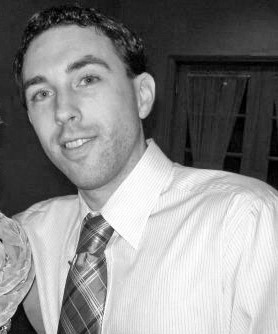|
Available in 3 formats:
Audio MP3 - Download: $15
Audio Compact Disc: $15
Video of PowerPoints with Synchronized Audio - Download: $18
Duration: 1 hr 27 min
 Chris Masterjohn Chris Masterjohn
Heart Disease and Molecular Degeneration:
The New Paradigm
When researchers first produced atherosclerosis in rabbits by feeding them cholesterol, they argued that atherosclerois was of an "infiltrative" rather than "degenerative" character. That is, cholesterol was so abundant that it infiltrated the blood vessel wall. Over the decades it has become clear, however, that atheroclerosis is an attempt to protect the lining of the blood vessel from toxic waste generated by the degeneration of vulnerable lipids. The process of molecular degeneration can be likened to breaking glass, and the formation of atherosclerosis can be likened to the process of cleaning up the broken shards. The danger is not gone forever, though, because these toxic waste management sites (or barrels of broken glass) can eventually burst and spill their contents into the blood, leading to clotting, oxygen starvation, and the death of local tissue that can result in a heart attack or stroke. The key to preventing heart disease according to the new paradigm is preventing the molecular degeneration in the first place.
Chris Masterjohn became a strict vegetarian in his late teens, but realized the importance of nutrient-dense animal foods in the human diet after discovering the work of the dental and nutritional researcher Weston Price and resolving a number of health problems by changing his diet. Over the past six years he has been a frequent contributor to the Weston A. Price Foundation's quarterly journal, Wise Traditions, has spoken at the foundation's annual Wise Traditions conference for the last four years, and currently maintains a blog on the Foundation's new web site.
Chris created and maintains http://www.cholesterol-and-health.com, a website dedicated to extolling the benefits of cholesterol-rich foods and detailing the essential functions that cholesterol plays in the body. More than 40,000 people visit his web site every month. He has published two letters to the editor on the importance of vitamin E in preventing heart disease, one in the American Heart Journal and one in the Journal of the American College of Cardiology. Chris has also published a hypothesis on the molecular mechanism of vitamin D toxicity in the journal Medical Hypotheses, which was partly confirmed in an experimental paper published by researchers from Tufts University last year. He is currently pursuing his PhD in Nutritional Sciences at the University of Connecticut, focusing on the role of antioxidants in supporting healthy blood vessel function and reducing the risk of cardiovascular disease. Chris is currently preparing a manuscript describing his experimental results showing that antioxidants protect against some of the damaging effects of sugar consumption
|

